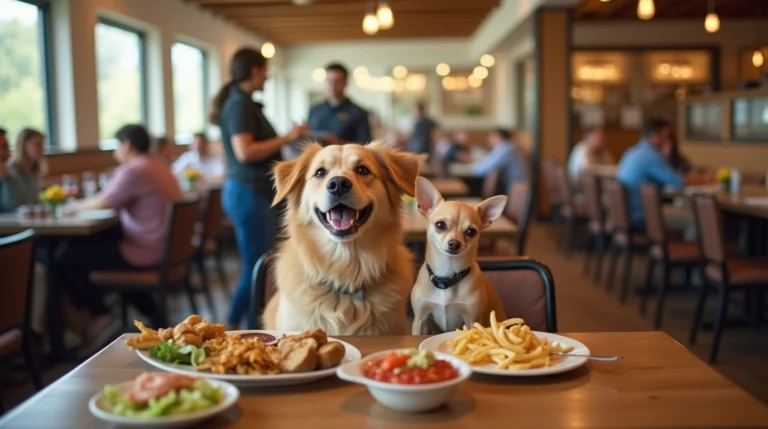Searching for a pet crematory near me? Discover 5 essential considerations to ensure dignified, trustworthy cremation services for your beloved companion.
Table of Contents
The loss of a beloved pet is one of life’s most challenging experiences. Our animal companions provide unconditional love, unwavering loyalty, and a presence that enriches our daily lives in countless ways. When facing the heartbreaking reality of saying goodbye, many pet owners find themselves searching for “pet crematory near me” while navigating profound grief. This difficult moment calls for compassionate guidance and clear information about available options. Pet cremation has become an increasingly common choice for memorializing animal companions, offering flexibility in how families honor their pet’s memory. However, not all pet crematories provide the same level of service, dignity, or care during this sensitive time. This comprehensive guide examines five essential considerations when selecting a pet crematory near you, helping you make informed decisions that honor your companion’s memory while providing peace of mind during the grieving process. Whether your loss is immediate or you’re planning ahead, understanding these key factors will help ensure that your pet’s final journey is handled with the respect and compassion they deserve.
Understanding Pet Cremation: The Basics


What Is Pet Cremation?
Before exploring selection criteria, it’s important to understand what pet cremation entails. Cremation is the process of reducing a deceased pet’s body to bone fragments through exposure to intense heat (typically 1400-1800 degrees Fahrenheit) in a specially designed furnace called a cremation chamber or retort. After cremation, the remaining bone fragments are processed into a finer consistency, resulting in what are commonly known as “ashes” or “cremains.”
The cremation process typically takes between 30 minutes and two hours, depending on your pet’s size. The resulting cremains are then placed in a temporary container or the permanent urn of your choosing.
Types of Pet Cremation Services
When researching “pet crematory near me,” you’ll encounter several types of cremation services:
- Private Cremation: Your pet is cremated individually, ensuring you receive only your pet’s cremains. The cremation chamber contains only your pet, and specific protocols maintain the integrity of the process.
- Individual Cremation: Your pet is cremated in a chamber that may contain other pets, but with separation barriers to keep the cremains mostly separate. Though less expensive than private cremation, there may be some mingling of ashes.
- Communal Cremation: Multiple pets are cremated together, and the cremains are not returned to owners. These are typically disposed of according to local regulations or scattered in designated areas.
- Witnessed Cremation: Some facilities offer the option to be present during your pet’s cremation, providing closure for some pet owners.
Understanding these distinctions is crucial, as terminology may vary between facilities. When searching for a “pet crematory near me,” always clarify exactly what service is being offered.
The Growing Preference for Pet Cremation
Pet cremation has become increasingly common, with the International Association of Pet Cemeteries and Crematories (IAOPCC) reporting that approximately 70% of pet owners now choose cremation for their deceased companions. This trend mirrors human cremation preferences, which have similarly increased in recent decades.
Several factors drive this preference:
- Mobility: Many families relocate multiple times and appreciate having portable memorials
- Cost considerations: Cremation is generally more affordable than burial options
- Environmental concerns: Some pet owners prefer cremation for environmental reasons
- Memorialization flexibility: Cremation allows for various ways to honor a pet’s memory
- Housing limitations: Many pet owners live in apartments or homes without suitable burial spaces
With these basics established, let’s explore the five essential considerations when selecting a pet crematory near you.
Consideration #1: Transparency and Trust in Cremation Practices
Verification Procedures
When searching for a “pet crematory near me,” the most crucial consideration is whether you can trust that the cremains you receive are truly those of your beloved companion. Reputable crematories implement strict identification and tracking systems:
- Unique identification numbers: Assigned to your pet throughout the entire process
- Tracking documentation: Paperwork that follows your pet from intake to return of cremains
- Verification processes: Multiple checkpoints where staff verify your pet’s identity
- Chain of custody protocols: Documented handoffs between staff members
- Photographic documentation: Some facilities photograph ID tags at various stages
Jennifer Wilson, director of a certified pet crematory in Ohio, explains: “Our clients trust us with something irreplaceable—their pet’s physical remains. We implement a five-point verification system where at least two staff members must confirm identity at each transition point. This redundancy ensures we never make mistakes with something so precious.”
Facility Transparency
Trustworthy pet crematories demonstrate transparency through:
- Facility tours: Willingness to show pet owners the entire facility, either in person or through virtual tours
- Open explanations: Clear, honest descriptions of exactly how they handle your pet
- Written guarantees: Documented promises regarding their practices
- Staff knowledge: Employees who can clearly explain procedures and answer questions
- Published standards: Visible commitment to industry best practices
While tours may not be possible during your time of need, facilities that offer scheduled tours to the public generally demonstrate confidence in their practices.
Industry Certification and Standards
When searching for a “pet crematory near me,” look for facilities with proper certifications:
- International Association of Pet Cemeteries and Crematories (IAOPCC) certification: Requires adherence to strict ethical standards and practices
- State-specific licenses: Compliance with local regulations governing pet cremation
- Association memberships: Participation in professional organizations that promote best practices
- Environmental compliance: Proper permits for crematory operation
- Staff certification: Trained and certified cremation operators
IAOPCC certification is particularly meaningful as it requires facilities to undergo inspections and demonstrate adherence to over 240 standards of practice, creating accountability beyond basic licensing requirements.
Red Flags to Watch For
Be cautious of facilities that:
- Resist questions about their processes or seem defensive
- Cannot explain their tracking system clearly
- Offer unusually low prices far below market averages
- Return cremains suspiciously quickly (proper cremation and processing takes time)
- Refuse facility access or are extremely secretive about their operations
Christine Taylor, who found a pet crematory after losing her 14-year-old Labrador, shares: “I called three places, and the difference was striking. Two answered all my questions thoroughly, while one seemed annoyed that I was asking about their identification process. That immediately eliminated them from consideration. This wasn’t the time to cut corners on trust.”
Consideration #2: Service Quality and Compassionate Care
Staff Training and Approach
When experiencing pet loss, the compassion shown by crematory staff significantly impacts your grief journey. When researching “pet crematory near me,” evaluate:
- Staff demeanor: Professionals who demonstrate genuine empathy and understanding
- Grief training: Staff educated in pet loss and bereavement support
- Communication style: Clear, gentle communication that respects your emotional state
- Patience: Willingness to answer questions without rushing you
- Flexibility: Accommodation of special requests when possible
Dr. Karen Sullivan, veterinary grief counselor, explains: “The difference between staff who have received proper bereavement training and those who haven’t is immediately apparent to grieving pet owners. Compassionate interaction can significantly affect the healing process.”
Range of Services Offered
Comprehensive pet crematories often provide:
- Transportation services: Pick-up from homes or veterinary offices
- Viewing options: Private rooms to spend final moments with your pet
- Memorial services: Facilities for small ceremonies before cremation
- Grief resources: Support materials or referrals to pet loss groups
- Aftercare consultation: Assistance with memorialization options
The breadth of services often indicates a facility’s commitment to supporting families through the entire process, not just the technical aspects of cremation.
Personalization Options
Meaningful memorialization options demonstrate respect for the human-animal bond:
- Variety of urns and keepsakes: Options that match your pet’s personality and your preferences
- Custom memorialization: Personalized products like paw prints, fur clippings, or nose prints
- Ceremony support: Materials or guidance for home memorial ceremonies
- Digital memorials: Online options to honor your pet’s memory
- Memorial jewelry: Items that incorporate a small amount of cremains
Michael Rodriguez, who recently used a pet crematory service for his 16-year-old cat, shares: “What impressed me most was how they asked about Midnight’s personality and suggested an urn that matched his dignified nature. They didn’t just process him—they honored him as the family member he was.”
Facility Environment
The physical space often reflects the facility’s philosophy:
- Clean, well-maintained areas: Demonstrating respect and professionalism
- Private consultation rooms: Spaces for discussing arrangements without interruption
- Comfortable waiting areas: If the facility offers witnessed cremation or viewing
- Memorial displays: Examples showing ways others have honored their pets
- Sound and scent considerations: Peaceful environment free from disturbing noises or odors
When searching for a “pet crematory near me,” consider whether you’ll need to visit the facility in person and whether the environment will provide the comfort you need during a difficult time.
Consideration #3: Pricing Structure and Transparency
Clear, Itemized Pricing
Financial considerations shouldn’t add stress during grief. Reputable pet crematories offer:
- Written price lists: Clearly documented costs for all services
- Itemized invoices: Detailed breakdown of charges
- No hidden fees: Transparency about all costs upfront
- Package options: Clearly defined service bundles with explicit pricing
- Payment policies: Clear information about accepted payment methods and timing
The following table illustrates typical price ranges for pet cremation services, though costs vary by location and pet size:
| Service Type | Small Pet (under 20 lbs) | Medium Pet (20-50 lbs) | Large Pet (50-100+ lbs) |
|---|---|---|---|
| Private Cremation | $150-$250 | $200-$350 | $250-$450+ |
| Individual Cremation | $100-$175 | $150-$250 | $200-$350 |
| Communal Cremation | $50-$125 | $75-$150 | $100-$200 |
| Additional Transportation | $25-$75 | $25-$75 | $30-$100 |
| Witnessed Cremation Fee | $50-$150 additional | $50-$150 additional | $50-$150 additional |
| Basic Urn | Included-$50 | Included-$75 | Included-$100 |
| Premium Urns | $75-$300+ | $100-$350+ | $150-$400+ |
Understanding Value vs. Cost
When searching for a “pet crematory near me,” remember that the lowest price may not represent the best value. Consider:
- Service inclusions: What specifically is included at each price point
- Quality guarantees: What assurances back up the service
- Staff qualifications: Training and certification of those handling your pet
- Facility standards: Quality and maintenance of equipment and spaces
- Additional fees: Whether extra charges might apply to your situation
Elizabeth Chen, who researched options after her dog’s cancer diagnosis, advises: “I called several places and created a spreadsheet comparing their services. The price differences made sense once I understood what each included. The cheapest option actually became the most expensive once all the ‘add-ons’ were included, which they considered standard at other facilities.”
Prepayment and Financing Options
Some facilities offer planning options:
- Pre-need arrangements: Ability to plan and pay for services before they’re needed
- Payment plans: Options to spread costs over time
- Financing partnerships: Relationships with services like CareCredit for veterinary and aftercare expenses
- Sliding scale or hardship programs: Some facilities offer assistance for financial hardship cases
- Veterinary practice partnerships: Special pricing through veterinary referral programs
Robert Thompson, manager of a pet crematory in Michigan, explains: “We never want financial concerns to force a family into a decision they’ll regret. We offer several payment approaches and maintain a compassion fund for families facing both emotional and financial hardship.”
Transparency About Business Model
Understanding a facility’s business approach provides context for their pricing:
- Direct service provider: Operates their own crematory equipment
- Third-party service: Contracts with another facility for actual cremation
- Veterinary relationship: Whether the facility serves the public directly or works primarily through veterinarians
- Corporate or family owned: Business structure and philosophy
- Non-profit status: Some pet crematories operate as non-profit organizations
When searching for a “pet crematory near me,” understanding these distinctions helps clarify price differences and service approaches.
Consideration #4: Location, Facilities, and Accessibility
Physical Location Considerations
The crematory’s location affects both practical arrangements and your experience:
- Distance from your home: Convenience for drop-off, pick-up, or visitation
- Distance from your veterinarian: Coordination ease if your pet dies at the vet’s office
- Transportation options: Whether they offer pick-up services and associated costs
- Neighborhood context: Setting and surroundings of the facility
- Parking and accessibility: Ease of facility access, particularly important during emotional distress
For many pet owners, finding a “pet crematory near me” focuses primarily on geographic proximity, but other accessibility factors often prove equally important.
Facility Types and Arrangements
Pet cremation services operate under various business models:
- Dedicated pet crematory: Facilities exclusively serving pets
- Funeral homes with pet services: Human funeral providers that have expanded to serve pets
- Veterinary-affiliated services: Crematories connected to veterinary practices
- Pet cemetery with crematory: Combined facilities offering both burial and cremation
- Mobile pet cremation: Services that bring cremation equipment to your location
Each model offers different advantages. Dedicated pet crematories typically specialize in animal companions, while funeral home services may offer more formal arrangements. Veterinary-affiliated services often provide seamless transitions but might offer fewer personalization options.
Hours and Availability
Consider whether the facility’s schedule meets your needs:
- Regular operating hours: When they’re typically open for arrangements and pick-up
- Emergency availability: After-hours options for sudden pet deaths
- Weekend service: Availability during non-business days
- Holiday policies: How they handle arrangements during holidays
- Wait times: Typical turnaround from cremation to receiving cremains
James Wilson, who needed after-hours assistance when his pet died unexpectedly at home, shares: “When searching ‘pet crematory near me’ at 11 PM, I discovered many places had no emergency options. The facility we chose answered our call and arranged immediate transportation, which made a difficult night much less traumatic.”
Digital Accessibility
In our connected world, online capabilities matter:
- Website comprehensiveness: Clear information available online
- Digital arrangement options: Ability to make arrangements without in-person visits
- Communication channels: Email, text, or chat options beyond phone calls
- Virtual consultations: Video meeting options for discussing arrangements
- Online payment options: Secure digital payment methods
These features prove particularly valuable when mobility issues, distance, or emotional distress make in-person visits challenging.
Facility Amenities
For services requiring your presence, consider:
- Viewing rooms: Private spaces for final goodbyes
- Witnessing accommodations: Facilities for families witnessing cremation
- Comfort features: Thoughtful touches like comfortable seating, tissues, water
- Children’s accommodations: Whether the space welcomes children and provides age-appropriate support
- Pet-friendly policies: Whether current pets are welcome during arrangements
Dr. Jessica Martinez, veterinary grief counselor, notes: “Facilities designed with grieving families in mind often include simple but meaningful touches—private spaces, soft lighting, comfortable seating, and absence of institutional feeling. These environmental factors significantly impact the experience.”
Consideration #5: Reviews, Reputation, and Recommendations
Evaluating Online Reviews
When searching for a “pet crematory near me,” online reviews provide valuable insights:
- Review consistency: Patterns across multiple platforms rather than isolated opinions
- Response to negative reviews: How the facility addresses criticism
- Specific vs. general comments: Detailed descriptions of experiences versus vague statements
- Emotional content: Stories that resonate with your concerns and priorities
- Recency: Current reviews that reflect present operations rather than historical practices
Look for reviews mentioning factors most important to you—whether that’s compassionate staff, transparent practices, or beautiful memorialization options.
Veterinary Recommendations
Veterinary professionals often have extensive experience with local cremation providers:
- Direct referrals: Specific recommendations from your trusted veterinarian
- Relationship disclosures: Transparency about any business relationships between the vet and crematory
- Coordination experience: How smoothly the vet works with the crematory
- Professional perspective: Insights into the facility’s handling of pets and interaction with clients
- Technical assessment: Veterinary evaluation of professional standards and practices
Dr. Thomas Chen, veterinarian in practice for 20 years, advises: “Ask your veterinarian which crematory they would use for their own pet—not just which ones they work with. This often elicits the most honest recommendation based on what they’ve observed over years of client experiences.”
Word-of-Mouth and Personal Experiences
Personal recommendations often provide the most trusted guidance:
- Friends and family experiences: Direct accounts from people you trust
- Pet loss support groups: Shared experiences from others who’ve recently used services
- Pet professional recommendations: Insights from groomers, trainers, and others in pet-related fields
- Community reputation: General standing within the local community
- Longevity and stability: How long the facility has served the community
Sarah Johnson, who found a crematory through a pet loss support group, shares: “Hearing others’ stories about how different facilities handled their pets helped me identify what mattered most to me. The place recommended consistently in our group provided exactly the dignified, transparent experience I needed during such a difficult time.”
Industry Recognition
Professional standing within the industry offers additional assurance:
- Better Business Bureau rating: Official standing and complaint history
- Industry awards: Recognition from professional organizations
- Media coverage: Positive coverage in local or industry publications
- Community involvement: Participation in pet-related community events and causes
- Educational leadership: Whether the facility provides professional education or public awareness
While searching for a “pet crematory near me,” remember that a facility’s reputation represents the collective experience of many families during vulnerable moments—making it one of the most significant considerations in your decision.
Making Your Final Decision
Weighing Priorities for Your Situation
When evaluating pet crematories, consider which factors matter most in your circumstances:
- Immediate need vs. pre-planning: Different priorities apply for advance planning versus urgent situations
- Budget constraints: Balancing financial limitations with desired services
- Religious or cultural requirements: Specific practices important to your beliefs
- Personal involvement preference: Whether you want direct participation or minimal involvement
- Memorialization vision: Your plans for honoring your pet’s memory long-term
Create a simple prioritized list of what matters most to help focus your decision-making during an emotionally challenging time.
Questions to Ask Potential Providers
When contacting a “pet crematory near me,” consider asking:
- “Can you explain exactly how you ensure I receive only my pet’s cremains?”
- “What identification system do you use throughout the process?”
- “Do you perform the cremations on-site or transport to another facility?”
- “What is your typical timeline from receiving my pet to returning the cremains?”
- “What options do I have for being present or saying goodbye before cremation?”
- “Can you provide a complete written list of services and prices?”
- “What memorialization options do you offer?”
- “Do you have any grief support resources or recommendations?”
- “What makes your facility different from others in the area?”
- “May I see the facility before making a decision?” (for pre-planning)
Record the answers for comparison if you’re considering multiple providers.
Trust Your Instincts
Beyond tangible factors, your emotional response matters:
- Communication comfort: How you feel during interactions with staff
- Gut feeling: Your intuitive sense about the facility and its people
- Alignment with values: Whether their approach resonates with your beliefs and priorities
- Peace of mind: The level of confidence and comfort you feel with your choice
- Respect perception: Whether you feel your pet is genuinely valued, not just processed
Michael Sanchez, grief counselor specializing in pet loss, advises: “The way you feel about your final arrangements for your pet will stay with you long after they’re gone. Choose a provider who makes you feel your pet matters to them—because that experience becomes part of your grief journey and eventual healing.”
Real Experiences: Pet Owner Testimonials
Finding Comfort in Compassionate Service
Rachel T., California: “After losing my 17-year-old cat Sophie, I was devastated. The pet crematory staff treated her with such dignity—they placed her on a velvet blanket, allowed me private time to say goodbye, and explained every step of the process. They even called the next day just to check how I was doing. Their compassion made an unbearable situation a bit more manageable.”
Transparency Providing Peace of Mind
Marcus L., Illinois: “What impressed me most was their commitment to transparency. They showed me their tracking system, explained how Sophie would never leave their care, and gave me a certificate with her unique tracking number. They even offered to show me the cremation chamber, though I declined. I never questioned whether the ashes I received were truly hers, which was incredibly important to me.”
Personalized Memorialization
Elena R., Texas: “When my dog Buddy passed, I wasn’t sure what I wanted besides cremation. The staff patiently showed me options without pressure. They created a paw print ornament, gave me a lock of his fur in a glass vial, and helped me select an urn that matched his personality—a wooden box with a carving of a dog catching a frisbee, his favorite activity. These keepsakes have become treasured connections to him.”
Navigating Unexpected Loss
James K., New York: “When our rabbit died suddenly on a Sunday, I frantically searched ‘pet crematory near me’ expecting nothing would be open. The place we found not only answered but arranged immediate pick-up from our home. They understood the unique grief of sudden pet loss and guided us through decisions with exceptional patience. Having compassionate professionals handle the practical matters allowed us space to begin processing our shock and grief.”
FAQ Section: Pet Cremation Services
How quickly after death should my pet be cremated?
Ideally, cremation should occur within 24-48 hours after death, though refrigeration can extend this timeframe when necessary. Various factors affect timing:
- Weather conditions: Higher temperatures may accelerate decomposition
- Body condition: Pets who died from certain conditions may require more prompt attention
- Facility schedule: Crematory availability, especially on weekends or holidays
- Viewing/visitation plans: Whether family members need time to say goodbye
- Religious or cultural practices: Specific timeframe requirements
Most pet crematories offer refrigeration services if immediate cremation isn’t possible. If your pet dies at home, and immediate transportation isn’t available, veterinary offices can often provide temporary cold storage until cremation arrangements are finalized.
How long does it take to receive my pet’s cremains back?
Typical turnaround times range from 2-10 business days, with several variables affecting the timeline:
- Service type: Private cremations typically take precedence over communal
- Pet size: Larger animals require longer cremation times
- Facility volume: Current workload at the crematory
- Special requests: Custom urns or memorial items may extend the timeline
- Transportation factors: Distance between locations if third-party transport is involved
Some facilities offer expedited services for an additional fee. When searching for a “pet crematory near me,” ask about their current timeline expectations, especially if receiving your pet’s cremains within a specific timeframe is important to your grieving process or memorial plans.
What happens if I can’t afford cremation services?
Several options exist for families facing financial constraints:
- Communal cremation: Significantly less expensive than private options
- Veterinary school donations: Some veterinary teaching hospitals accept donated remains
- Payment plans: Many facilities offer installment payment options
- Compassion programs: Some crematories maintain funds for hardship cases
- Municipal services: Local animal control may offer basic disposition services
Additionally, some pet-specific charities provide financial assistance for end-of-life care. When searching for a “pet crematory near me,” don’t hesitate to inquire about financial hardship options—many facilities are committed to ensuring all pets receive dignified care regardless of owner finances.
Can I witness my pet’s cremation?
Many pet crematories offer witnessed cremation services, though availability varies:
- Scheduled appointments: Most facilities require advance scheduling
- Viewing limitations: Some allow witnessing the placement into the chamber but not the entire process
- Facility design: Purpose-built viewing areas versus adapted spaces
- Additional fees: Many charge extra for witnessed services
- Attendance limits: Restrictions on how many family members can attend
Witnessed cremation provides assurance about the handling of your pet’s remains and can be an important part of the grieving process for some pet owners. When searching for a “pet crematory near me,” inquire about this option early if it’s important to you, as not all facilities accommodate this request.
What should I do with my pet’s cremains afterward?
Pet cremains offer numerous memorialization options:
- Traditional display: Keeping the urn in a special place in your home
- Garden memorials: Incorporating the urn into a garden setting or placing in a pet memorial stone
- Scattering ceremonies: Dispersing ashes in locations meaningful to you and your pet
- Division among family: Sharing cremains among multiple household members using keepsake urns
- Memorial jewelry: Small portions placed in specialized pendants, rings, or bracelets
- Growing memorials: Biodegradable urns that nourish memorial trees or plants
- Glass art: Custom glass orbs or sculptures incorporating a portion of cremains
There are no legal restrictions in most areas regarding keeping pet cremains, unlike human remains which may have more regulations. Your choice should reflect your personal comfort and what best helps your healing process.
Conclusion: Honoring Your Pet with Informed Choices
Selecting the right pet crematory represents one of the final acts of care we provide for our beloved companions. By carefully considering the five essential factors outlined in this guide—transparency and trust, service quality and compassionate care, pricing structure, location and accessibility, and reputation—you can make choices that honor your pet’s memory while supporting your own grief journey.
Remember that there is no single “right” approach to pet aftercare. The most appropriate choice varies based on your relationship with your pet, your personal values, practical considerations, and individual circumstances. What matters most is finding services that treat your pet with dignity, provide you with confidence in their practices, and offer memorialization options that meaningfully reflect your unique bond.
When searching for a “pet crematory near me,” take the time to ask questions, compare options when circumstances allow, and trust your instincts about which provider feels most aligned with your needs. The care and thought you invest in these final arrangements can provide comfort during grief and create lasting memorial connections to the animal companion who enriched your life.
Have you had experience with pet cremation services? Consider sharing your insights with others navigating this difficult journey—your experience might provide valuable guidance to someone facing this painful decision for the first time.







